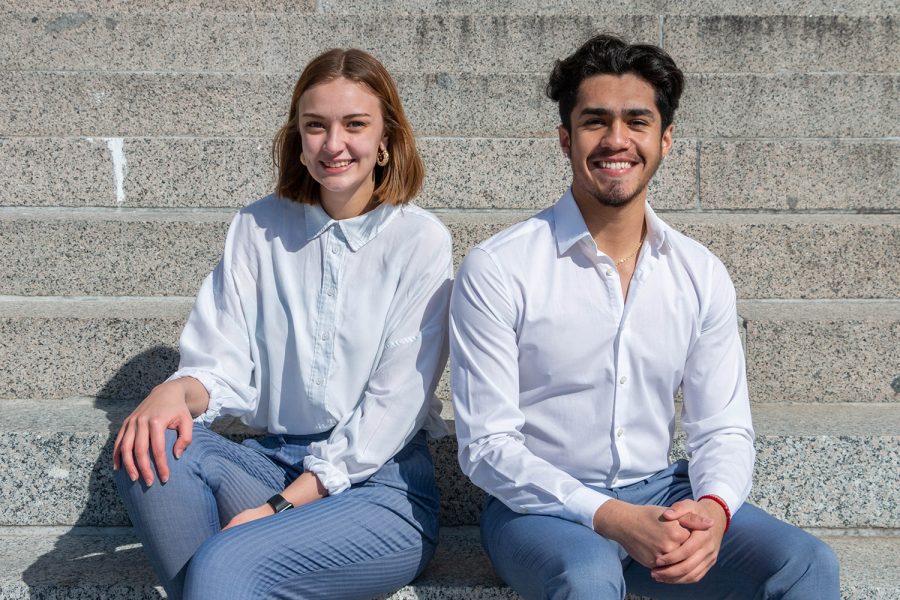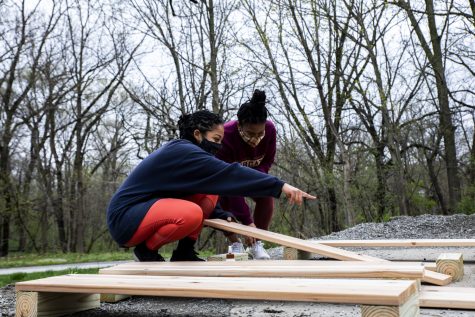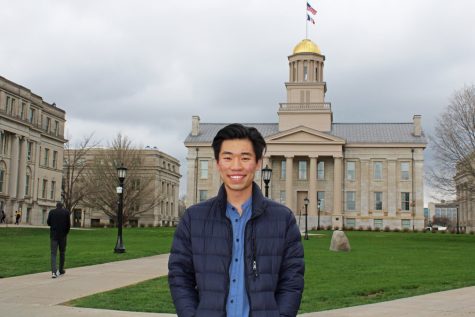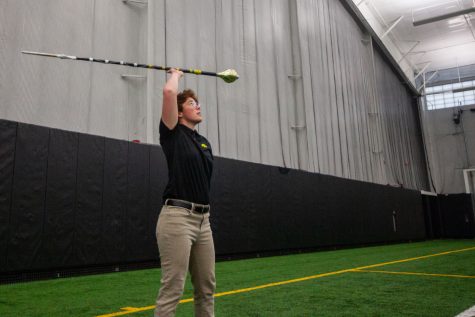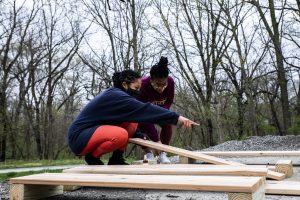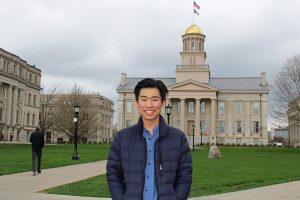USG elections conclude with record low turnout
This week, USG elections concluded with 2.3 percent of eligible voters participating. Regan Smock and José Muñiz Jr. will be the next president and vice president.
University of Iowa students José Muñiz Jr. and Regan Smock pose for a portrait outside of the Old Capitol building on Sunday afternoon. Muñiz Jr. and Smock are running for office in the upcoming University Student Government election.
April 11, 2021
Regan Smock and José Muñiz Jr. will be the next president and vice president of Undergraduate Student Government, following a completely virtual campaign and uncontested election.
Beginning April 5, University of Iowa undergraduates had three days to vote for executive, at large-senate, and constituency positions on MyUI – 2.3 percent of eligible voters participated in this year’s election compared to 2.8 percent in 2020 and 13 percent in 2019.
RELATED: Five students to run for a 2021 USG Independent Senator position
This year, 31 senate seats, two constituency seats, and the executive positions were up for election. USG faced numerous setbacks from the COVID-19 pandemic, said USG Elections Commissioner Andrew Swiston.
“I will say, we had record-low turnout, which I’m not surprised by given both the trend from last year and, you know, the whole pandemic thing,” Swiston said. “I feel like we could blame the pandemic for a lot of it. I mean, it is hard to publicize this sort of event effectively. You know, when people aren’t in person, you can’t put up posters – that sort of deal.”
USG members who run for election are required to have 75 undergraduates sign a petition in support of their candidacy. Before the COVID-19 pandemic, candidates were given large pieces of paper to have students physically sign. This year, USG made an online version that candidates were able to fill out.
Despite the low turnout, Swiston said he has high hopes and expectations for the USG body.
“This group, I think, more than ever, has their work cut out for them by being willing to run during a pandemic and being able to successfully run a campaign,” Swiston said. “I think this speaks a lot to their ability to get things done. So, I have high hopes and high expectations of how they’re going to be.”
RELATED: Regan Smock, José Muñiz Jr. announce their Undergraduate Student Government presidential ticket
Smock, who was elected USG president, has been serving as the USG director of academic affairs for the past two years. Smock said she believes that low turnout could be due to USG’s uncontested elections.
“I think it’s partly because of the lack of competition,” Smock said. “When [elections] are contested it gets people excited.”
Smock and Muñiz Jr. received 404 of the 475 undergraduate votes in the uncontested presidential election, equaling roughly 85 percent. In the 2020 USG election, 615 undergraduates voted for executive ticket Connor Wooff and Mara Smith, 2,000 votes fewer than previous elections.
Between 2015 and 2019, USG elections garnered between 2,000 and 6,000 votes, with an average turnout of about 4,000, according to data supplied by Swiston.
Data visualization by Kelsey Harrell/The Daily Iowan
Smock said as president, she hopes to increase voter turnout by asking faculty and staff to encourage students to participate in the elections.
“When you see something more than once, you’re more likely to participate but also [UI staff] might be a voice that they respect, and they will be able to understand more clearly why it’s so important to participate,” she said.
Smock said as president, she is aiming to make USG more inclusive and to increase student voice on campus.
“I hope that soon we become a more inclusive and compassionate student government,” Smock said. “I hope to see that, but I also hope to increase the student voice in general,” Smock said.
On April 30, the state Board of Regents will select a new university president. The university will bring four finalists to campus over the next two weeks before making a selection on April 30. Smock said she hopes to work with the new president in achieving her goals.
“I believe the most important opinion at any table in higher education settings, is student voices,” Smock said.



